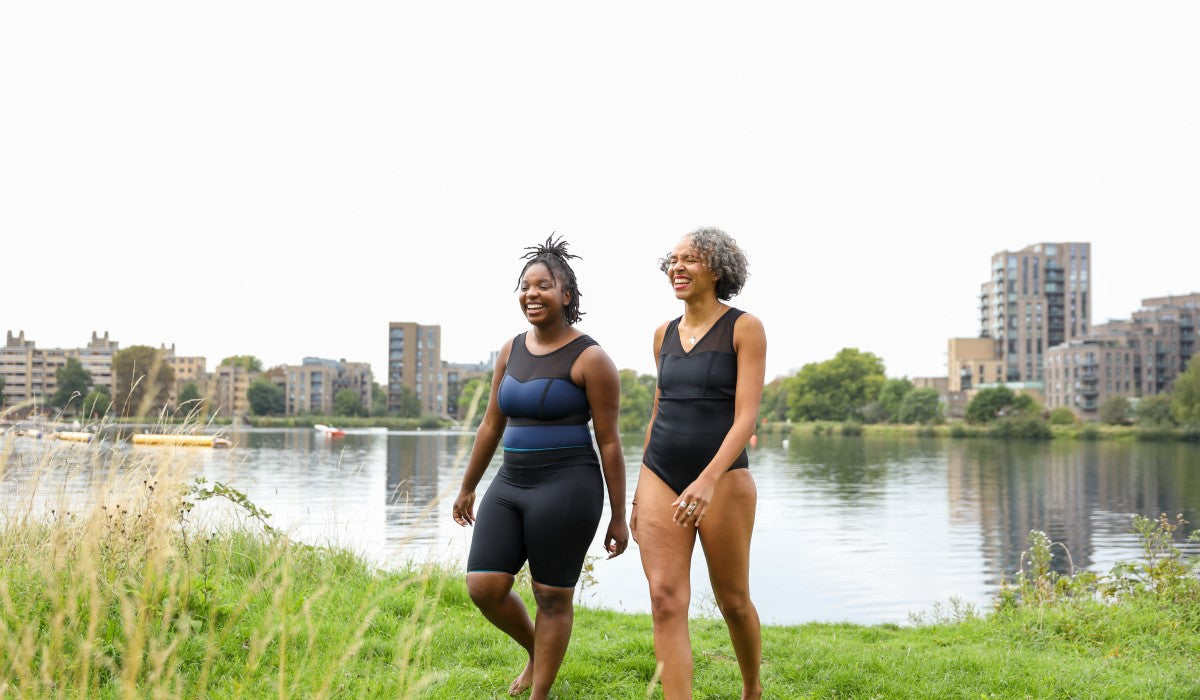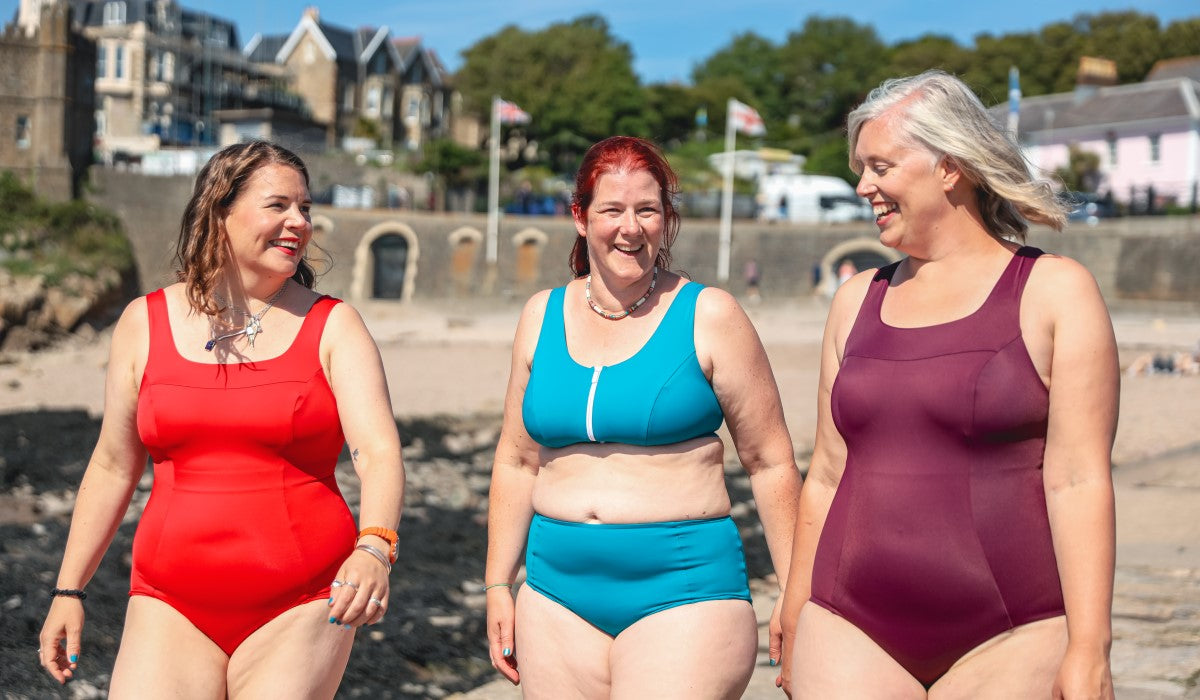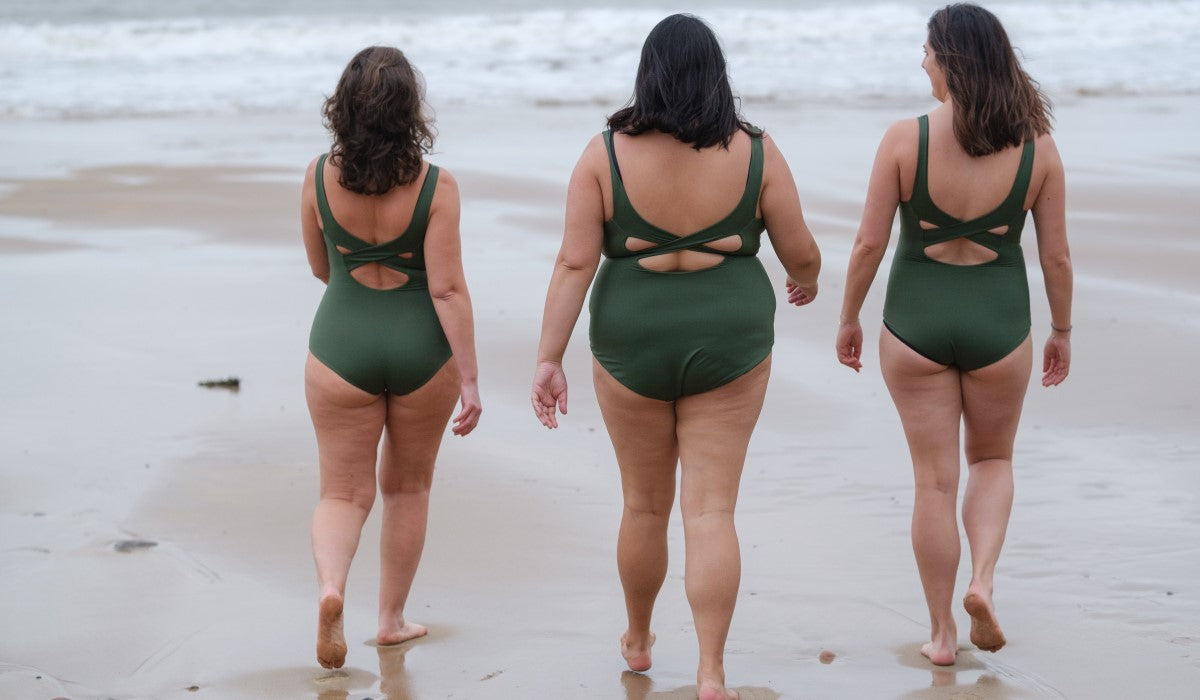Your Bag is Empty
Free UK delivery on all orders over £100. Free UK returns.

We’ve got a fun fact for you: humans are one of few mammals who can’t innately swim. Can you guess which other mammals can’t swim (one is really surprising)? We’ll give you a clue – none of the others have the capacity to learn. But we can. With a little bit of help from a swimming teacher, coach or swim guide, we can learn new skills and explore new places.
So, how do you decide who can best help you fulfil your swimming ambitions? We asked Rowan, our resident swimming coach, for her top tips. First of all, we asked her, what’s the difference between a swimming teacher, coach and swim guide?
“Most of us know swimming teachers from our own childhood or children’s swimming lessons – they teach in pools and know how to teach all the strokes, plus skills like diving and tumble turns,” says Rowan. “Swimming coaches use a slightly different technique to support swimmers beyond swimming lessons in the pool, so they coach competitive swimming or, like me, open water swimming. Swim guides take individuals or groups on swim expeditions, which can be anything from a dip in a river or cove to a longer guided swim.”

While a swimming coach or teacher can help you set goals, it helps to have an idea of your swimming ambition. This might be to learn a new stroke or try swimming outdoors. It could be that you want a distance goal or swimming challenge. Or you might want to explore somewhere new.
Once you’ve decided what you want, you’ll know where to look for support. For example, if you want to learn front crawl, you could start at your local pool with swimming lessons for adults. Or, if you want to explore a specific place, you might search for a swim guide rather than a coach or teacher.
“Visualisation really helps you define your goal. Picture where you want to be with your swimming in six months’ time,” says Rowan. “You might see yourself swimming a whole length of your pool using front crawl, or on the finish line of a challenge swim.”
Your next step is to seek out the right person to support you. Swimming experts don’t just teach people swimming skills and techniques, they also provide safety, teach you how to be safe and comfortable in water, and help you make the most of the many benefits of swimming.
Nothing beats a personal recommendation, so ask around. Otherwise, use a search engine or an app such as Wild to find coaches. If you’re looking for a swim guide, search by location, eg ‘swimming guide St Ives’ or look at local experience or tourist websites. If you’re looking for a teacher, try your local leisure centres.
Wherever you find your swim coach, teacher or guide, it’s worth researching their credentials and qualifications as well as their specialisms. Look for:

Once you’ve found someone who looks right for you, have a look at what they offer. It’s worth checking out:
Before you book and pay, it’s worth dropping your potential coach, teacher or swim guide a quick email or giving them a call.
“You’re very vulnerable when you’re in the water, so trust and rapport with the person who’s coaching or looking after you is so important,” says Rowan. “You might get a good feeling about what they’re like from their website or social media, but it never hurts to have a quick chat on the phone or by email if you need reassurance.”
One last thing…
Still wondering which other mammals can’t swim naturally? They include other great apes like chimps and gorillas, camels, giraffes (not a surprise) and amazingly, hippos. Even though they spend so much of their time in water, hippos are too dense and their legs too short to swim. Instead, they run along the river bed.
